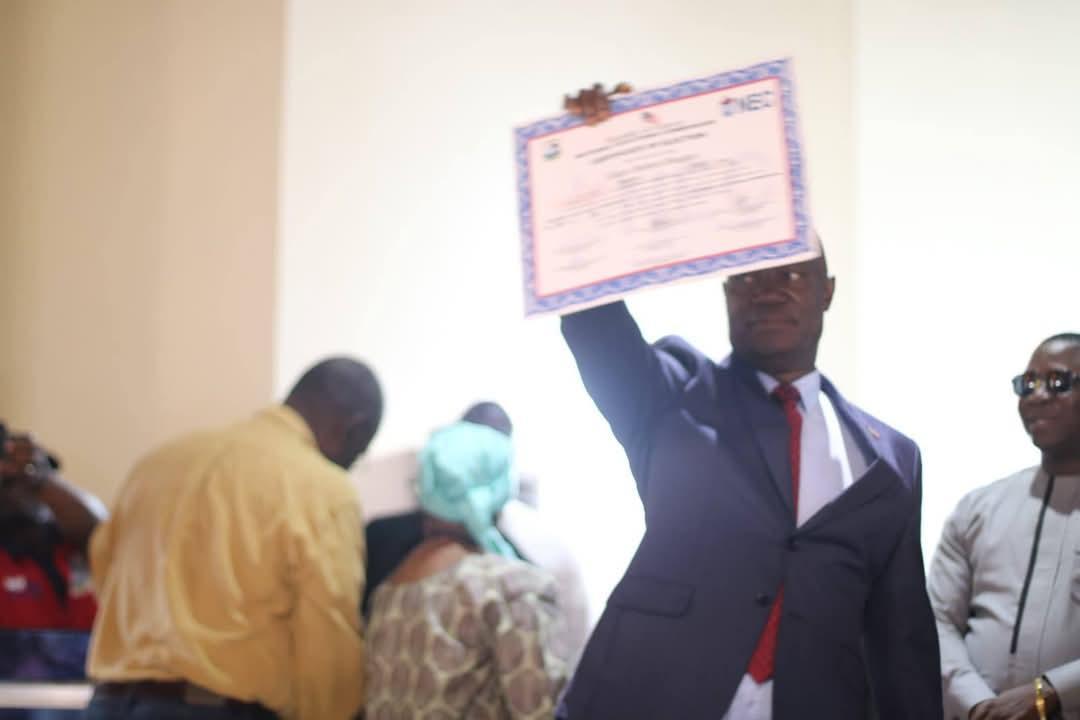Africa-Press – Liberia. The certification and swearing-in of Senator Samuel G. Kogar marks a pivotal political transition in Nimba County. While the April 22 by-election victory gave Kogar a strong electoral mandate, his inauguration also opens a new chapter fraught with expectations for reform, healing, and performance.
The county, long shaped by the influence of the late Senator Prince Yormie Johnson, now looks to Kogar to deliver a new style of leadership amid social divisions and growing demands for accountability.
The senator’s first public statements, pledging unity and denouncing tribalism, are politically symbolic and necessary in a county historically polarized along ethnic and partisan lines.
His call for decentralization and inclusive hiring—promising representation for all major ethnic groups in his office—appears aimed at reassuring communities that have felt politically sidelined. But symbolism alone will not satisfy a county where citizens are increasingly vocal about governance outcomes.
Civil society’s response to Kogar’s early rhetoric has been swift and pointed. CENTAL’s call for public asset declaration suggests a growing public appetite for transparency and an early test of the senator’s commitment to clean governance.
The proposal for monthly town halls and local participation in decision-making reflects a broader sentiment: people want leadership that is visible, accountable, and responsive.
Kogar’s economic agenda, including the proposed “Bank of Nimba” and local job training initiatives, is ambitious. If realized, it could address longstanding grievances about youth unemployment and access to capital. Yet implementation will be critical—and critics may quickly seize on delays or underperformance, especially given the high expectations now publicly set.
Analysts also highlight the deep wounds left by the campaign period, when rhetoric around ethnicity, exclusion, and loyalty fractured communities. Kogar’s greatest political challenge may be less about legislation and more about reconciliation. His leadership will be judged not just on policies, but on his ability to build bridges across the county’s nine electoral districts and between rival political camps.
The willingness of former opponent Mark Gbelwon to endorse the election result and urge unity offers Kogar an opening to model inclusive governance. But sustaining that goodwill will require a strategic balance of political outreach and practical service delivery.
On the social front, calls from youth and women’s advocates suggest that future tensions may arise not from partisan disputes, but from unmet socio-economic needs. Yah Belleh Suah’s demand for action on gender-based violence and economic empowerment of rural women, for example, signals that development plans will be closely scrutinized through both equity and results lenses.
In sum, Senator Kogar’s entrance onto the national stage is loaded with both opportunity and risk. His political rise, partly viewed as a continuation of Prince Johnson’s legacy, also invites a clean break: one that could shift Nimba’s politics from strongman populism to democratic accountability.
For More News And Analysis About Liberia Follow Africa-Press






